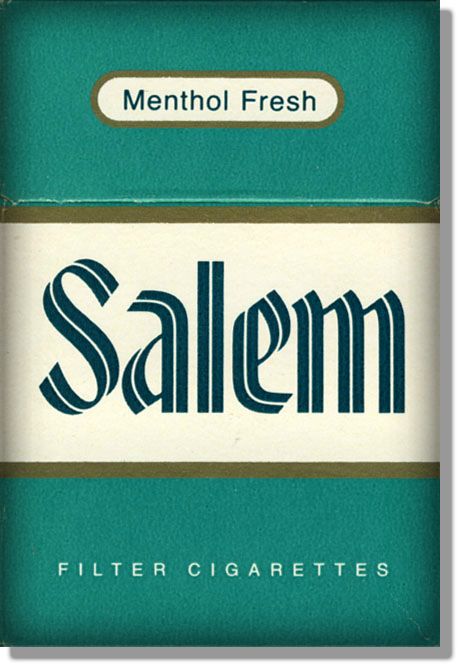Just when we are reminded that unnecessary conflict between the police and the people, especially in poorer black communities, is a poison to be eliminated forthwith, the Biden administration has moved in the wrong direction. Late last month the administration signaled that it wants to ban menthol cigarettes, which are especially popular with black smokers.
“Banning menthol—the last allowable flavor—in cigarettes and banning all flavors in cigars will help save lives, particularly among those disproportionately affected by these deadly products,” Acting Food and Drug Administration Commissioner Janet Woodcock said. “With these actions, the FDA will help significantly reduce youth initiation, increase the chances of smoking cessation among current smokers, and address health disparities experienced by communities of color, low-income populations, and LGBTQ+ individuals, all of whom are far more likely to use these tobacco products.”
For years the FDA had been pushed on this issue by a coalition of organizations, including some self-identified black advocacy groups, although other similar groups, along with the ACLU, have opposed the ban. The FDA has finally agreed to the ban. It will take time to put it in place because of the public-comment process.
Let’s be clear on what is going down. The central government wants to stop certain minority smokers from indulging their preferences. That’s paternalism pure and simple. Apparently blacks and others who prefer menthol smokes cannot be persuaded to stop, so they will have to be forced–for their own good. A far higher percentage of black smokers than white smokers prefer menthol to unflavored cigarettes.
Strangely, this is occurring during the height of concern about unjustified police violence against black men and women. As we know, product prohibition always prompts the creation of illegal markets, and this breeds a poisonous relationship between police and the communities in which the illegal activities are most likely to occur. The reason couldn’t be simpler. Unlike with crimes of violence against person and property–that is, offenses with victims–vice laws attempt to stop consensual transactions. Since those transactions by nature have no complainant, the police inevitably resort to intrusive, rights-violating methods to catch people in the act. The methods include surveillance, use of dodgy informants with have incentives to lie and set people up, and other trickery. It couldn’t be any other way. If laws against victimless “crimes” are to be enforced, the most egregious enforcement methods will be brought to bear as a matter of necessity. It’s in the very nature of the legal suppression of vice. (I’m including gambling, drugs, prostitution, and so on.)
Considering that minority community trust in the police is is not exactly high, why would anyone want to give the police more authority to root out consensual interaction? It can only make things worse.
Anticipating this criticism, the FDA promises it will not target consumers; only manufacturers and distributors will be in the authorities’ sights. But that statement is misleading. Plenty of damage can be done at the street level if the manufacturers and distributors of illegal menthol cigarettes turn out to be small-scale neighborhood operations, which they may well be. (Why would highly visible Big Tobacco take the risk?) If people demand menthol smokes, other people will creatively cater to their demand. Remember Eric Garner’s fatal encounter with the police when he was illegally selling individual cigarettes (“loosies”) presumably to get around the high New York tobacco tax. In Massachusetts, which has already banned menthol cigarettes, the black market is reported on the rise. When police efforts to stop black-market manufacturers and distributors fail, will the police turn on consumers? Stamping out demand (if it could be done) would surely stamp out supply.
This can’t end well. For one thing, a ban on one product could morph into a ban on other items that contribute to the production of originally targeted product.
And let’s keep in mind the larger context. While the government says it’s trying to save smokers from themselves, it also demonizes vaping and has outlawed most vape flavors. True, the exceptions to that ban (for now?) are tobacco and menthol flavors, but still the FDA has made efforts to scare smokers from switching to vaping, which is known to be much safer than inhaling the smoke from burning tobacco leaves. If smokers are scared away from vaping, many will stick with smoking, menthol or no menthol.
Meanwhile the FDA is also looking into lowering the nicotine content of cigarettes to “nonaddictive levels,” a futile act of mere signaling since smokers could simply smoke more cigarettes to make up their nicotine deficit.
When will government learn? Actually, that’s the wrong question. Officials have no incentive to take seriously many things they must already know because it would cost them their mission, power, and prestige.
Abolition of all vice laws should be step number one in any effort to eliminate unjustified police violence. Forbidding the state’s officers from looking for outlawed but consensual transactions couldn’t help but create a better relationship between the police and the people, especially those in the most vulnerable communities.
(For the case against all laws against victimless crimes, see Lysander Spooner’s Vice Are Not Crimes.)






























